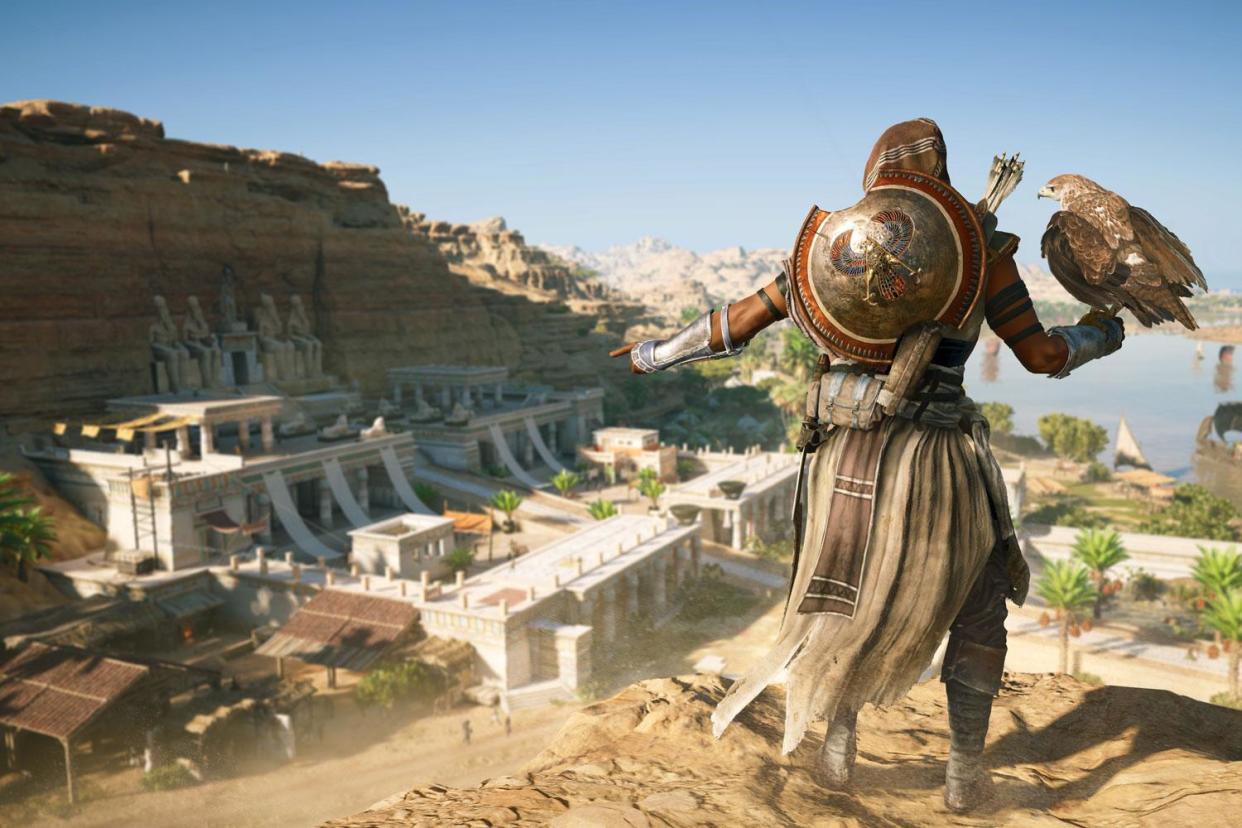Assassin's Creed Origins' Discovery Tour shows how video games could be an education game-changer

Assassin’s Creed sends players hurtling back into tumultuous eras of history, from the Crusades to the American Revolutionary War and, most recently, Victorian Britain.
But with the series’ emphasis on stealthy gameplay and danger around every corner, sitting back and admiring the view in Ubisoft’s expertly crafted historical restorations has never been high on the agenda.
Assassin’s Creed Origins is changing that. The latest game in the franchise will take players deeper into its Ancient Egyptian setting than ever before. Alongside the usual stalk-and-stab gameplay, Origins includes a new Discovery Tour mode that strips away the story missions and violent combat. What remains is a vibrant game world packed with historical details that the developers learned through years of research.
“We’ve had the idea for several years now,” says the game’s creative director, Jean Guesdon. “Since Assassin’s Creed 2 we had an in-game encyclopaedia called the Animus Database. The idea was always to bring knowledge to the players.”

Discovery Tour displays Origins’ vast, digital Egypt like “an open buffet”, Guesdon says. Players pick a topic that interests them — the city of Alexandria, the Pyramids, daily life in Cleopatra’s Egypt — and can roam the map freely, learning more through audio guides and images.
The developers worked closely with Egyptologists and historians, including Ubisoft’s in-house researcher Maxime Durand, to create something at best authentic, and at least rooted in fact.
“We’re continuing to improve and master our craft of creating historical fictions,” Guesdon explains. “In the tours we explain why we made some decisions, whether it’s because of technical constraints, gameplay purpose or narrative reasons. There’s never been this layer of interactivity and artistic direction, and the quality of the recreation really is strong enough to support and sustain academic knowledge.”
Even ahead of Origins’ release, Assassin’s Creed fans are engaging with the Egyptian setting. Australian gamer Claire Manning, who has studied archaeology and the reign of Cleopatra VII, recently started a project on her Twitter feed, @Clazzaranius, to decipher the hieroglyphics used in the game’s marketing campaign. Detailing her research and findings, Manning’s work revealed that the symbols on the poster contain phrases that will be familiar to Assassin’s Creed veterans.

“Claire Manning’s Twitter thread is really cool because she’s explaining her process,” says Guesdon, who adds that it was Egyptologist Perrine Poiron who devised the hidden hieroglyphic message. “Like the game, it’s grounded in real history, there is real knowledge, but we can use it for fiction and bring people into a narrative. These layers of mystery, codes and hidden knowledge have always been part of Assassin’s Creed.”
The historical integrity of the franchise is indicative of how games can educate players in a casual setting, or even in academia. Few mediums offer agency and exploration in the way that games do.
“We don’t pretend to revolutionise education but video games definitely have a role to play in the future, and this is our modest first step,” Guesdon says. “This medium has to be considered as a powerful tool to engage people, especially kids, to learn things. I have kids who aren’t 18 yet, and I’d be more than happy to sit with them and free roam in Egypt without any risk of conflict — just focusing on the beauty of the world.”
Guesdon adds that Discovery Tour is also safe for students at school. “We know for sure that some teachers won’t be shy to bring it to school. We put a lot of effort in — take it, use it. We’re not here to tell people how to manage their courses but this material is fully accessible.”
Follow Ben Travis on Twitter: @BenSTravis
Assassin’s Creed Origins arrives on Xbox One, PS4 and PC on October 27

 Yahoo News
Yahoo News 
